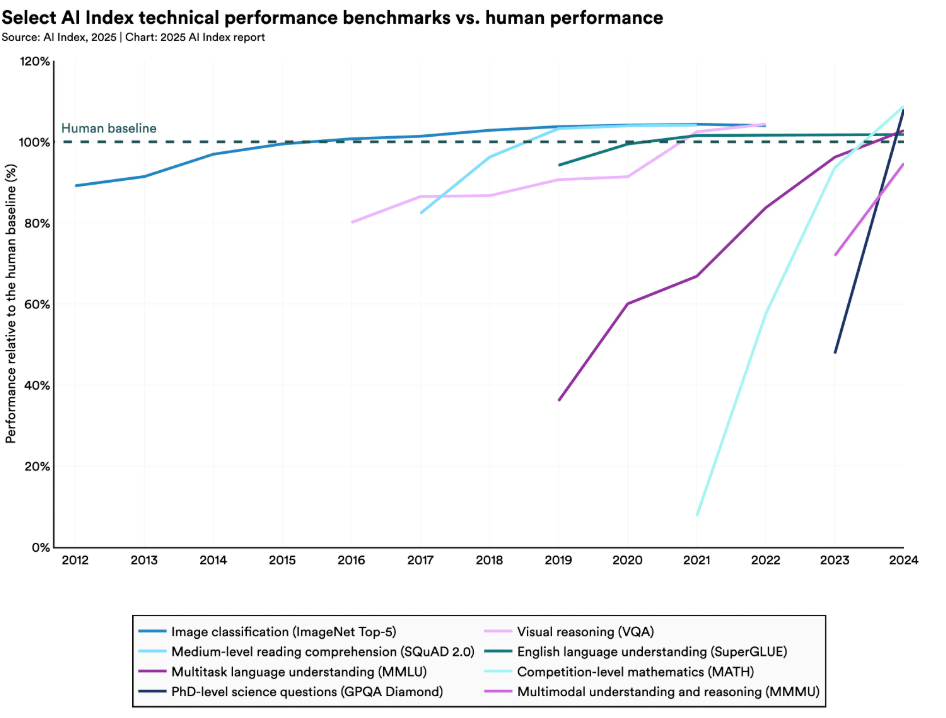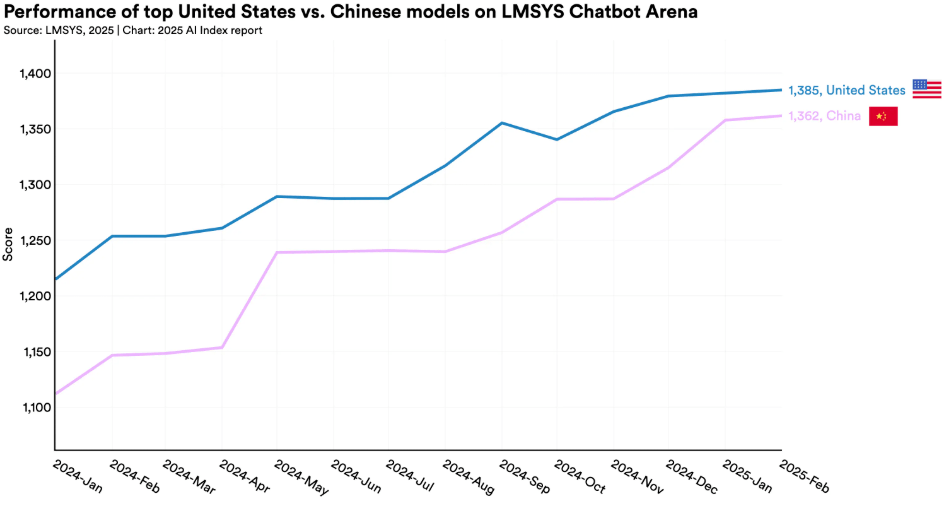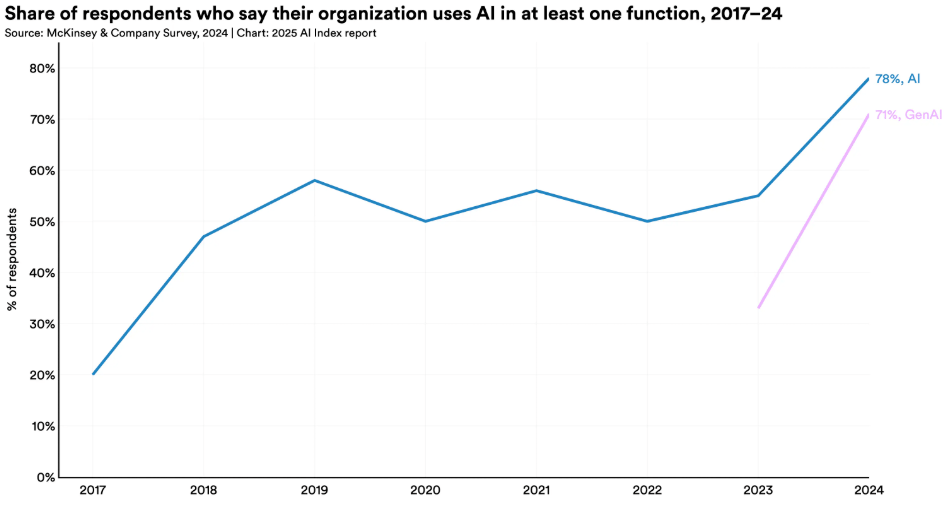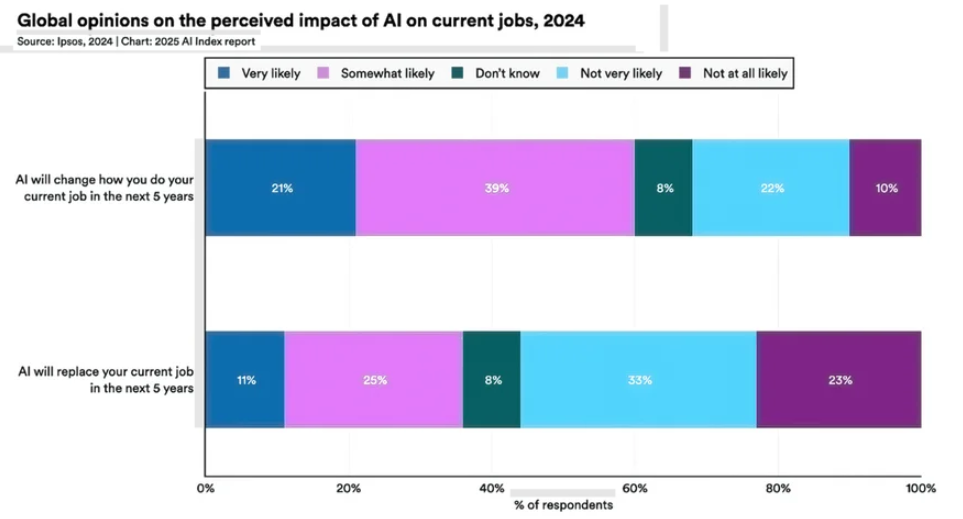AI Index 2025 documents continued growth in AI capabilities and adoption

Stanford's Institute for Human-Centered AI has released its annual AI Index Report, providing the most comprehensive data-driven analysis of artificial intelligence development to date.
The 400-page study examines AI's expanding influence across society through detailed analysis of research data, industry trends, and global adoption patterns. Drawing from studies and surveys published throughout the year, the report evaluates eight key areas: research and development, technical performance, responsible AI, economic impact, science and medicine, politics, education, and public opinion.
Accelerate
The findings show steady progress in AI capabilities throughout 2025. On new benchmarks like MMMU, GPQA, and SWE-bench, AI systems achieved score improvements of up to 67.3 percentage points, with many now performing at or above human levels.

Looking ahead, researchers face new challenges as traditional benchmarks reach "saturation" with AI systems achieving maximum scores. In response, more demanding evaluations like "Humanity's Last Exam" are being developed.
The United States continues to lead in advanced AI development with 40 of the most significant AI models, while China follows with 15 and Europe with three. However, performance differences between Chinese and American models have diminished significantly. What was a double-digit gap in early 2024 has narrowed to near parity, with open-source models also gaining ground on proprietary systems.

U.S. private investment in AI reached $109.1 billion, dwarfing China's $9.3 billion investment. Global generative AI funding grew 18.7 percent to $33.9 billion. Corporate adoption expanded significantly, with 78% of organizations now using AI - a 23 percentage point increase from the previous year.

Global disparities and public perception
The report reveals significant disparities in AI access and education. While two-thirds of countries offer AI education in schools, many African nations lack fundamental infrastructure like reliable electricity. Public attitudes also vary widely by region, with high optimism in China (83%), Indonesia (80%), and Thailand (77%), contrasting with lower approval in Canada (40%), the USA (39%), and the Netherlands (36%).
Recent Ipsos polling shows 36% of respondents expect AI to replace their jobs within five years, while 56% consider this unlikely and 8% remain uncertain. A majority (60%) anticipate some AI-driven changes to their work.

The full report offers additional insights and detailed analysis.
AI News Without the Hype – Curated by Humans
As a THE DECODER subscriber, you get ad-free reading, our weekly AI newsletter, the exclusive "AI Radar" Frontier Report 6× per year, access to comments, and our complete archive.
Subscribe nowAI news without the hype
Curated by humans.
- Over 20 percent launch discount.
- Read without distractions – no Google ads.
- Access to comments and community discussions.
- Weekly AI newsletter.
- 6 times a year: “AI Radar” – deep dives on key AI topics.
- Up to 25 % off on KI Pro online events.
- Access to our full ten-year archive.
- Get the latest AI news from The Decoder.